WWF-Philippines Conducts Training Sessions on Food Waste Management and Sustainability Marketing for Serve Our Planet 2019 Cebu City
July 2019
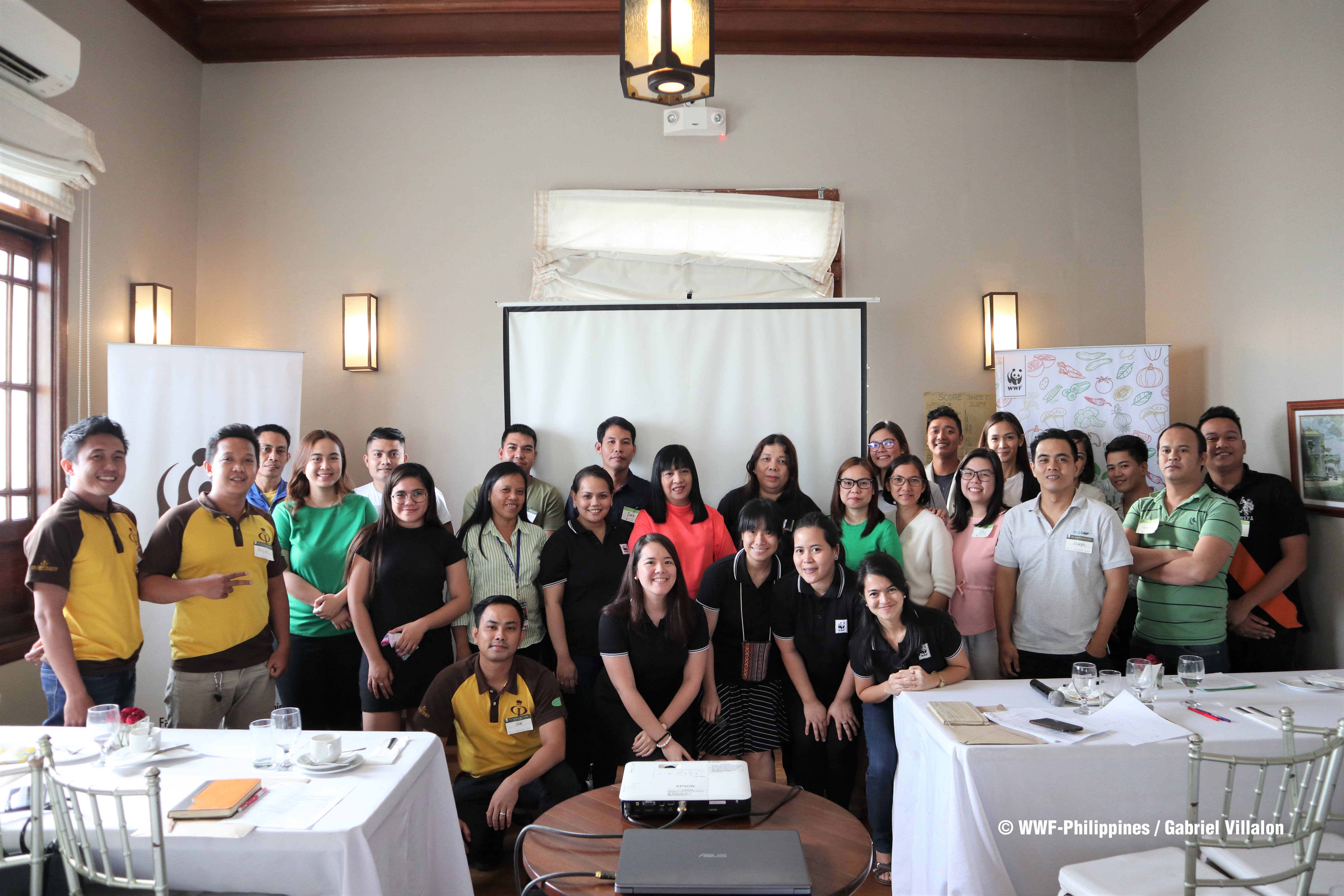
The participants of the Serve Our Planet: Food Waste Management and Marketing Sustainability training include representatives from the Department of Tourism Philippines - Region VII, Cebu City Chamber of Commerce and Industry, and the project’s partner restaurants and organizations from Cebu City.
Last July 10, 2019, World Wide Fund for Nature (WWF) Philippines’ The Sustainable Diner: A Key Ingredient for Sustainable Tourism project conducted the Cebu City leg of Serve Our Planet: Food Waste Management and Marketing Sustainability at Circa 1900 Casa Dos. Serve Our Planet is a series that provides capacity development trainings and workshops for members of the food service industry, aiming to equip the participants with the skills and knowledge needed in order to help their restaurants and hotels eliminate food waste, as well as ensure that their sustainability efforts are well-communicated to their diners. The third training of the year in Cebu City was held in partnership with the Department of Tourism (DOT) Philippines - Region VII, Cebu City Chamber of Commerce and Industry, and the Cebu City Local Government Unit.
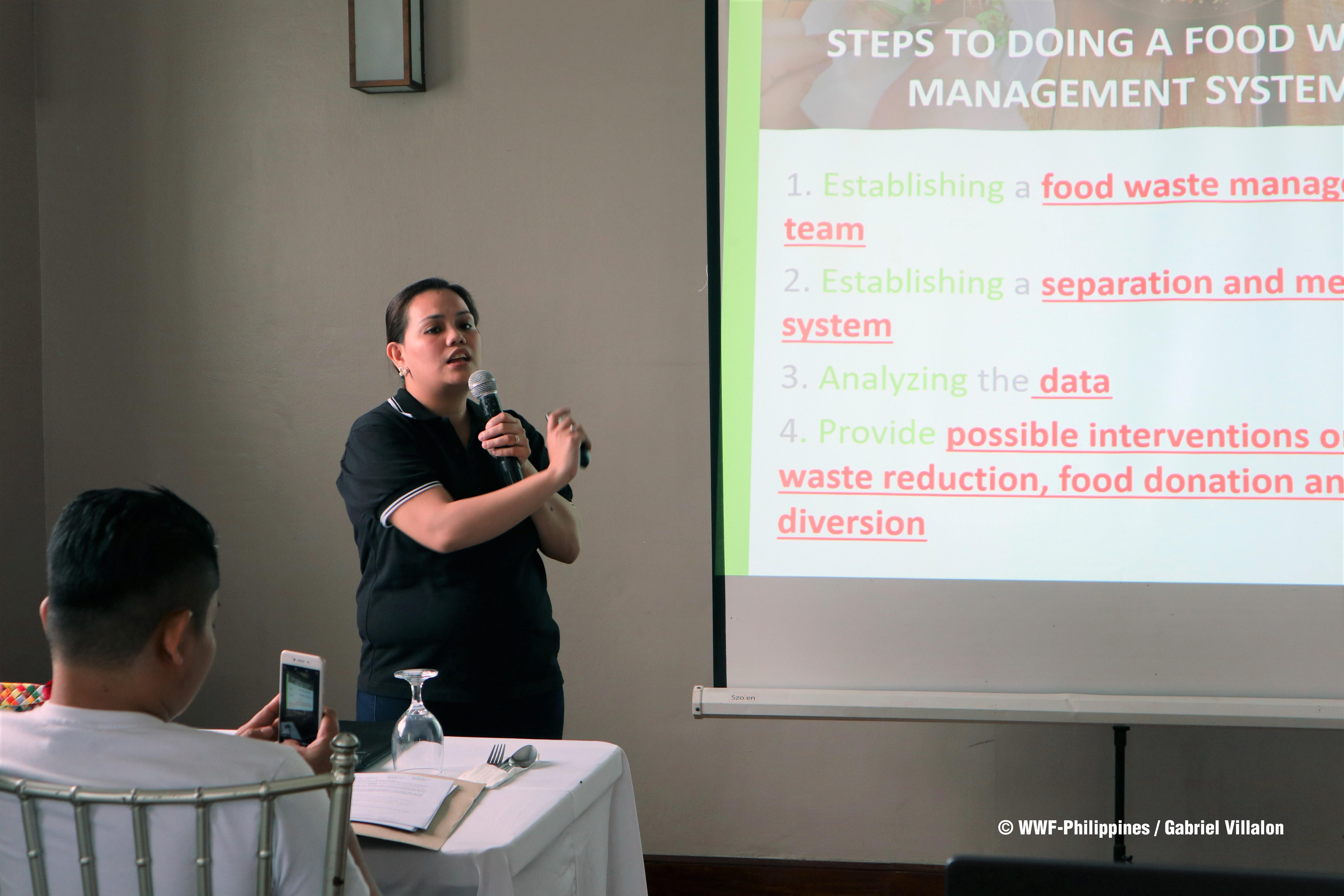
Melody Melo-Rijk, WWF’s Project Manager for Sustainable Consumption and Production in the Philippines, discussing the steps necessary when setting up a food waste management system in restaurants and hotels.
Melody Melo-Rijk, WWF’s Project Manager for Sustainable Consumption and Production in the Philippines, started the session by giving a brief overview on The Sustainable Diner project as well as delivering news on significant project milestones and action plans. Given that a good chunk of the attendees invited by the Cebu City Chamber of Commerce and Industry have not yet partnered with the project, the re-brief was very useful in convincing them to reach out in the future. She then proceeded to conduct the morning session on Food Waste Management, wherein she shared key data points on hunger and food wastage happening in the Philippines and all over the world. The statistics clearly showed that there is enough food to feed the entire world but because of unsustainable consumption and production practices in the industry, one-third ends up as waste instead. She emphasized that in the Philippines, where the dining trend is continuously growing along with the rise of the tourism industry, restaurants and hotels play crucial roles in promoting sustainable dining practices through their operations, staff training, and even marketing.
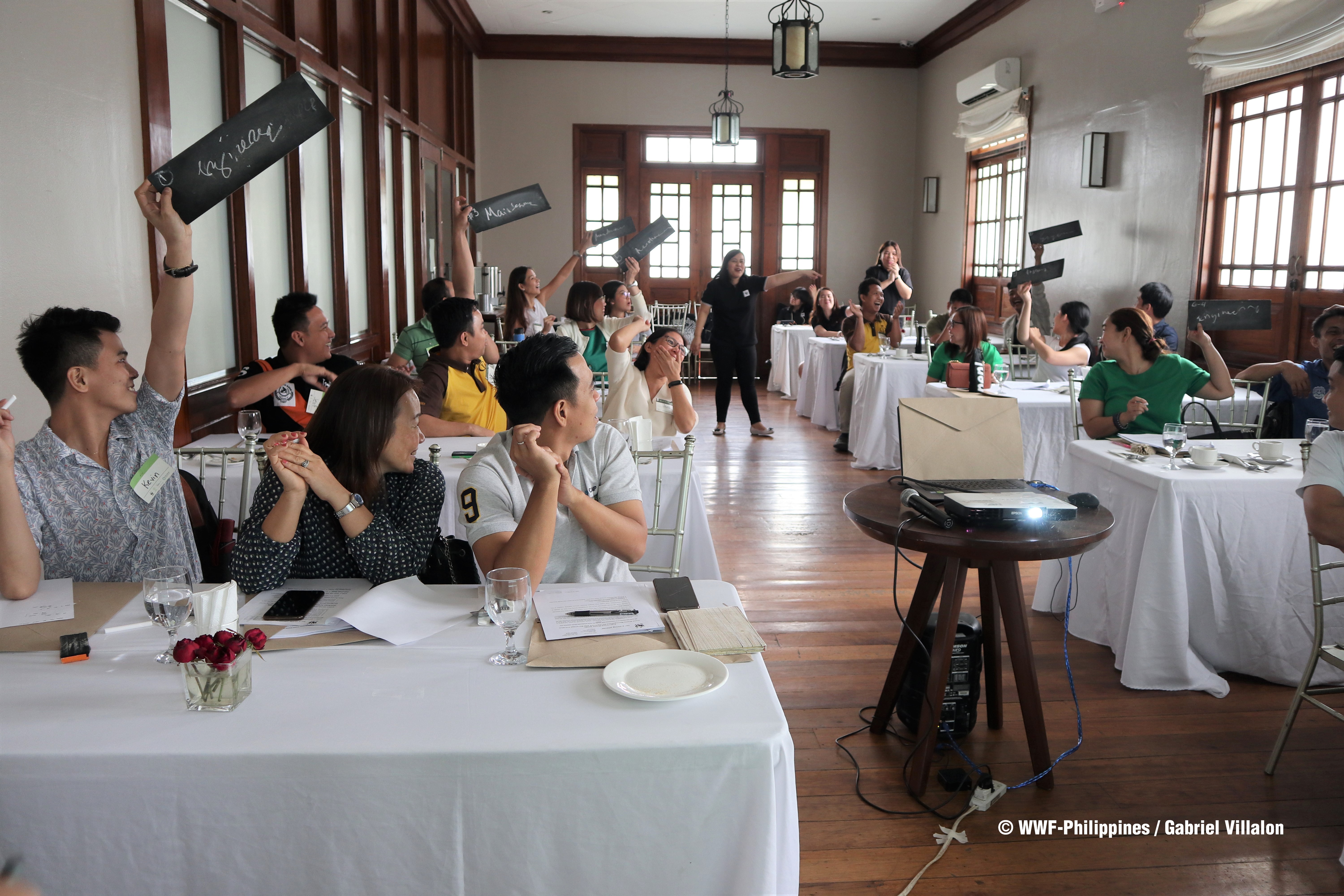
Liezl Stuart Del Rosario, The Sustainable Diner project’s Policy Specialist, served as a spotter for the food waste management session’s group games, where teams were required to write their answers on pieces of chalkboard. The first team to raise their chalkboard with the correct answer earns points for prizes to be won at the end of the training.
Restaurants and hotels can contribute so much to the fight against food waste, and one way by which they can do so is by setting up their own food waste management system. Melo-Rijk encouraged everyone to consider this for their establishments as she shared with them the localized version of the Food Waste Management Toolkit, developed by WWF US in collaboration with the American Hotel and Lodging Association (AHLA) and with the generous support from the Rockefeller Foundation. The participants gained more knowledge about food waste management through several discussions, video presentations, hands-on activities, and group games.
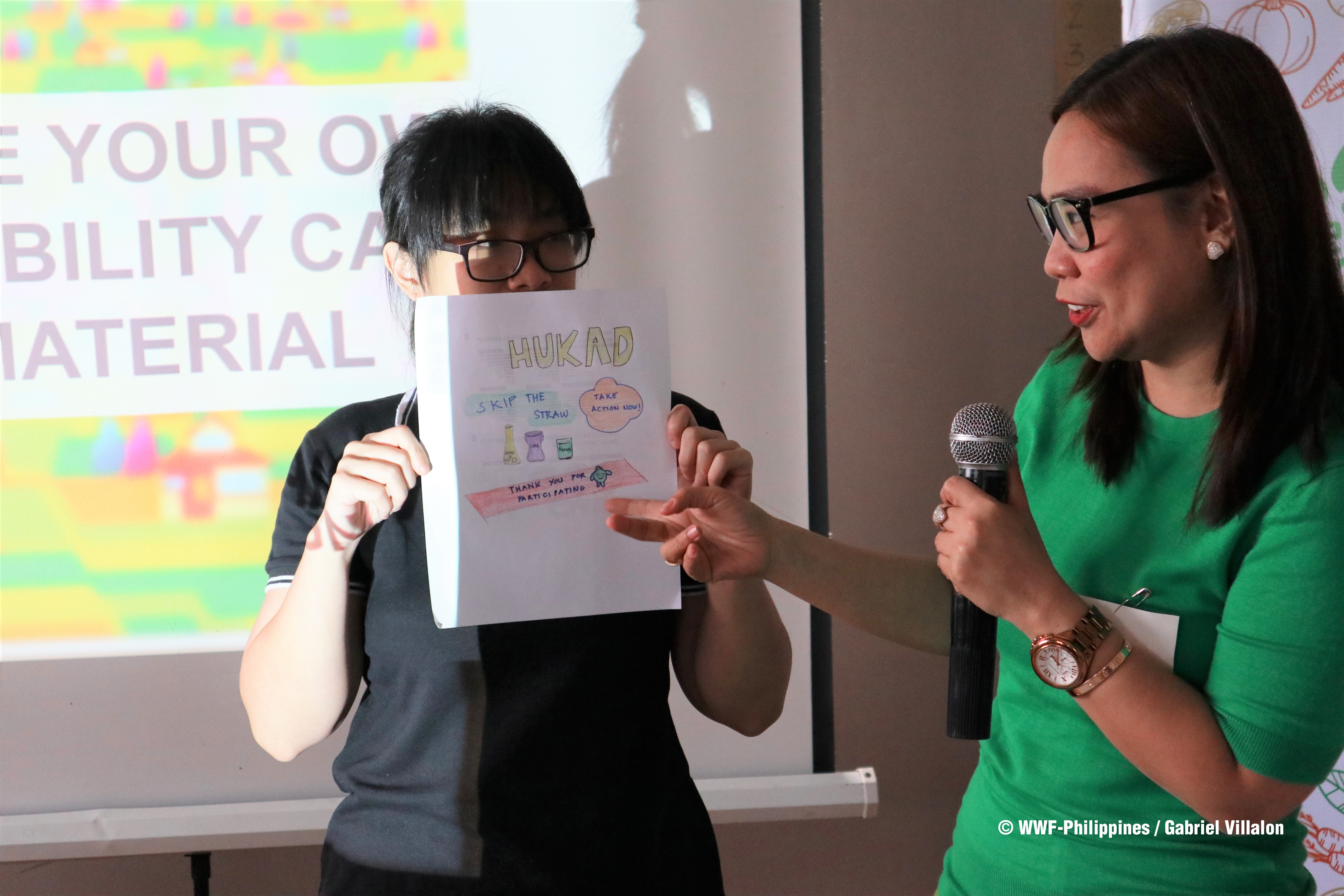
Pamela Luber, The Sustainable Diner project’s Integrated Marketing Communications Specialist, holding the campaign visual created by Mary June V. Galo of Hukad as she presented her campaign idea and visual to the rest of the participants.
For the afternoon session, Pamela Luber, The Sustainable Diner project’s Integrated Marketing Communications Specialist conducted a workshop focused on sustainability marketing. She shared a thinking process that can be used by the participants when coming up with their sustainability campaigns.The participants experienced the process of creatively brainstorming, crafting, and even drawing possible sustainability campaign ideas for their restaurants and hotels. The four- part workshop helped the participants look at sustainability marketing as any other marketing campaign a brand would have - a problem needs to be established, the brand’s values and strengths need to be highlighted, the target market needs to be assessed, and a creative solution needs to be crafted. The final workshop output was for each participant to come up with their very own sustainability campaign for their respective establishments, complete with a slogan, a hashtag, and a visual.
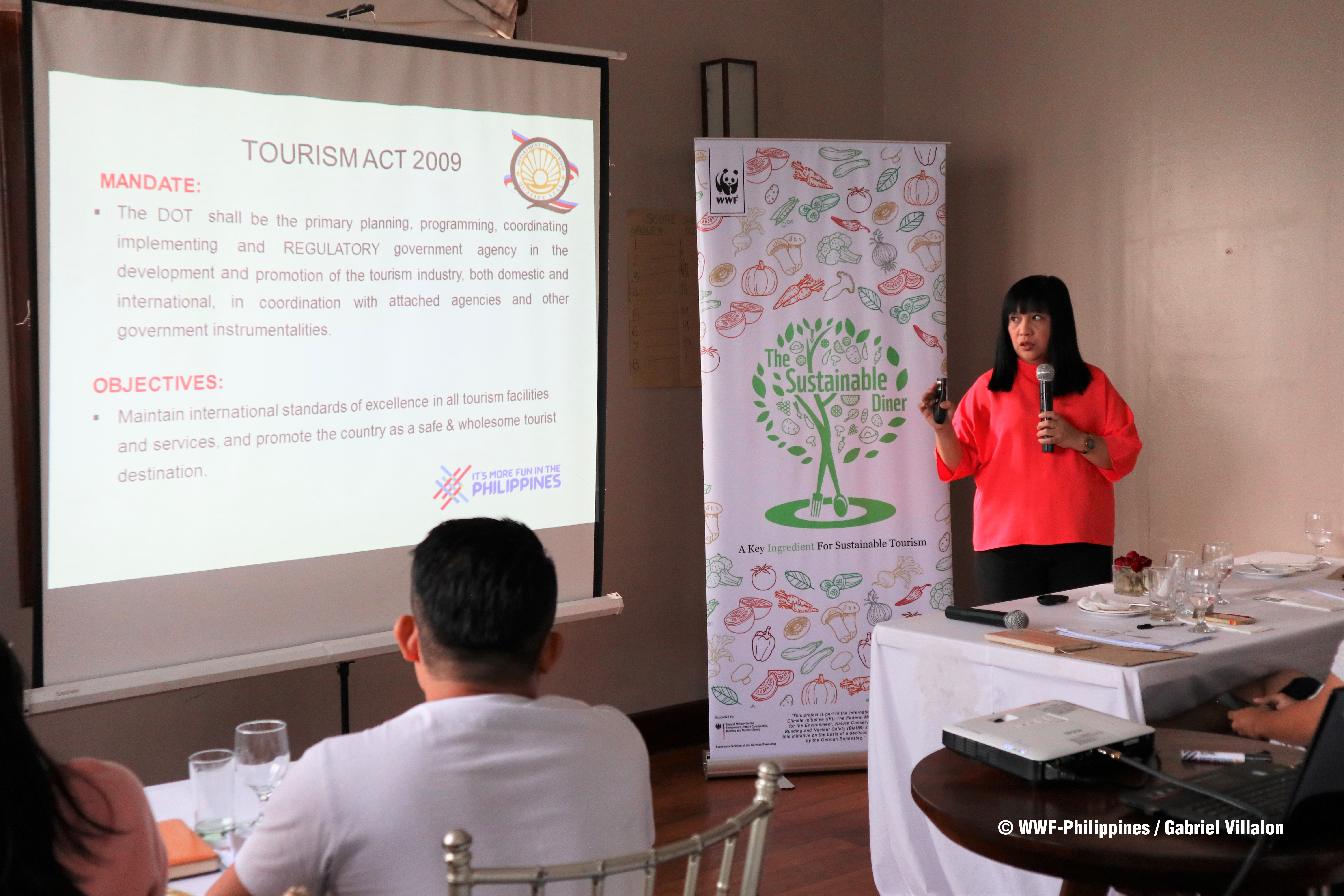
Judy D. Gabato, DOT Philippines - Region VII’s Chief Tourism Operations Officer, discusses the Tourism Act of 2009 with the representatives of various restaurants and hotels in Cebu City.
To close the entire session, Ms. Judy D. Gabato, Chief Tourism Operations Officer of the Department of Tourism Philippines - Region VII, briefly shared with the participants the advantages of getting a restaurant or hotel DOT accreditation, as well as the necessary requirements needed and the various guidelines to be followed. According to their website, the DOT accreditation is a certification issued by the Department of Tourism to a tourism enterprise, which includes restaurants and hotels, that will serve as an official recognition that the enterprise has complied with the minimum standards for operation of tourism facilities and services. Gabato encouraged the restaurants and hotels present to apply for accreditation, as they can enjoy various benefits especially since sustainable tourism is one of the key thrusts of the DOT.
All in all, the entire day was spent learning new things and sharing best practices with each other, especially among the restaurants and hotels in Cebu City. The Sustainable Diner project hopes that through our training sessions, we are able to empower more restaurants and hotels to integrate sustainability practices in their operations and to equip them with additional skills and knowledge so they can help us educate more Filipino diners about sustainability and the importance of sustainable dining.
The Sustainable Diner project, under WWF-Philippines’ Sustainable Consumption and Production, is part of the International Climate Initiative (IKI). The Federal Ministry for the Environment, Nature Conservation, and Nuclear Safety (BMU) supports this initiative on the basis of a decision adopted by the German Bundestag.
For more information, please contact:
Melody Melo-Rijk
Project Manager
mmelorijk@wwf.org.ph
For media arrangements, please contact:
Pamela Luber
Integrated Marketing Communications Specialist
pluber@wwf.org.ph
Lorayne Roque
Sustainable Consumer Specialist
lroque@wwf.org.ph
